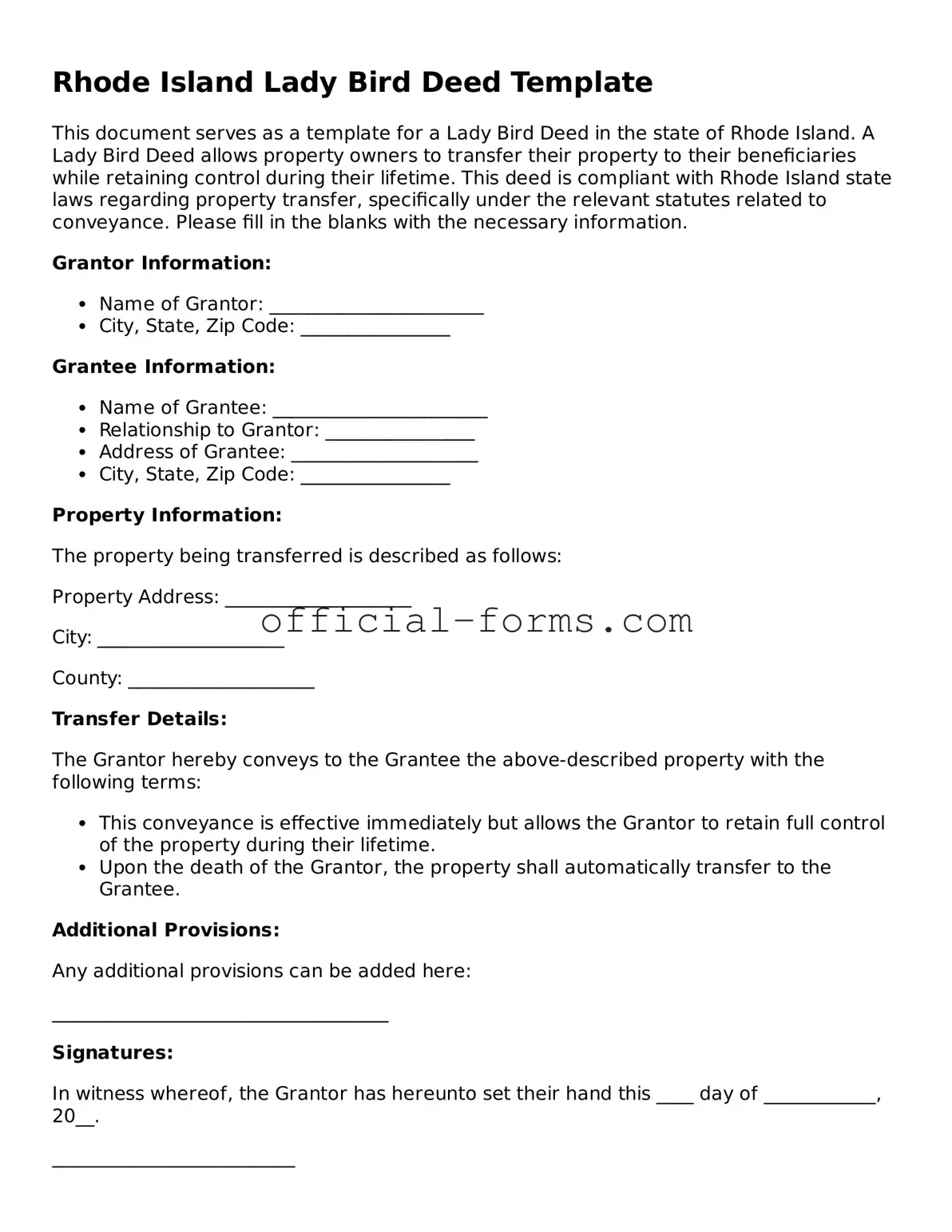Filling out a Lady Bird Deed form in Rhode Island can seem straightforward, but many people make common mistakes that can complicate the process. One of the most frequent errors is failing to include all necessary information about the property. It's crucial to provide a complete legal description, including the property's address and any parcel numbers. Omitting this information can lead to confusion or disputes later on.
Another mistake involves incorrect naming of the beneficiaries. When designating who will inherit the property, clarity is key. People sometimes use nicknames or abbreviations that can lead to ambiguity. To avoid issues, always use the full legal names of the beneficiaries. This ensures that there is no doubt about who is intended to receive the property.
Many individuals overlook the importance of having the deed notarized. A Lady Bird Deed must be signed in the presence of a notary public to be legally binding. Failing to do so can render the deed invalid. It’s a simple step that can save a lot of trouble down the line.
In addition, some people forget to record the deed with the local land records office. Recording the deed is essential for it to take effect and be recognized by third parties. If this step is skipped, the deed may not be enforceable, leaving the property in legal limbo.
Another common pitfall is not considering tax implications. While a Lady Bird Deed can help avoid probate, it may have tax consequences that need careful consideration. Consulting with a tax professional before finalizing the deed can prevent unexpected tax liabilities.
People also sometimes fail to update their Lady Bird Deed after major life changes, such as marriage, divorce, or the birth of a child. Keeping the deed current is vital to ensure that it reflects your wishes accurately. If changes occur and the deed is not updated, the intended beneficiaries may not receive the property as planned.
Additionally, some individuals do not understand the implications of retaining a life estate. A Lady Bird Deed allows the grantor to retain control of the property during their lifetime. However, misunderstanding this can lead to unintended consequences regarding property management and rights.
Moreover, individuals may not seek legal advice when needed. While it’s possible to fill out the form independently, consulting with a legal expert can help clarify any doubts and ensure that all aspects of the deed are properly addressed. This can save time and prevent future complications.
Finally, people often rush through the process without reviewing the completed deed. Taking the time to double-check all entries can catch errors that might otherwise go unnoticed. A careful review can make a significant difference in ensuring the deed is valid and effective.

